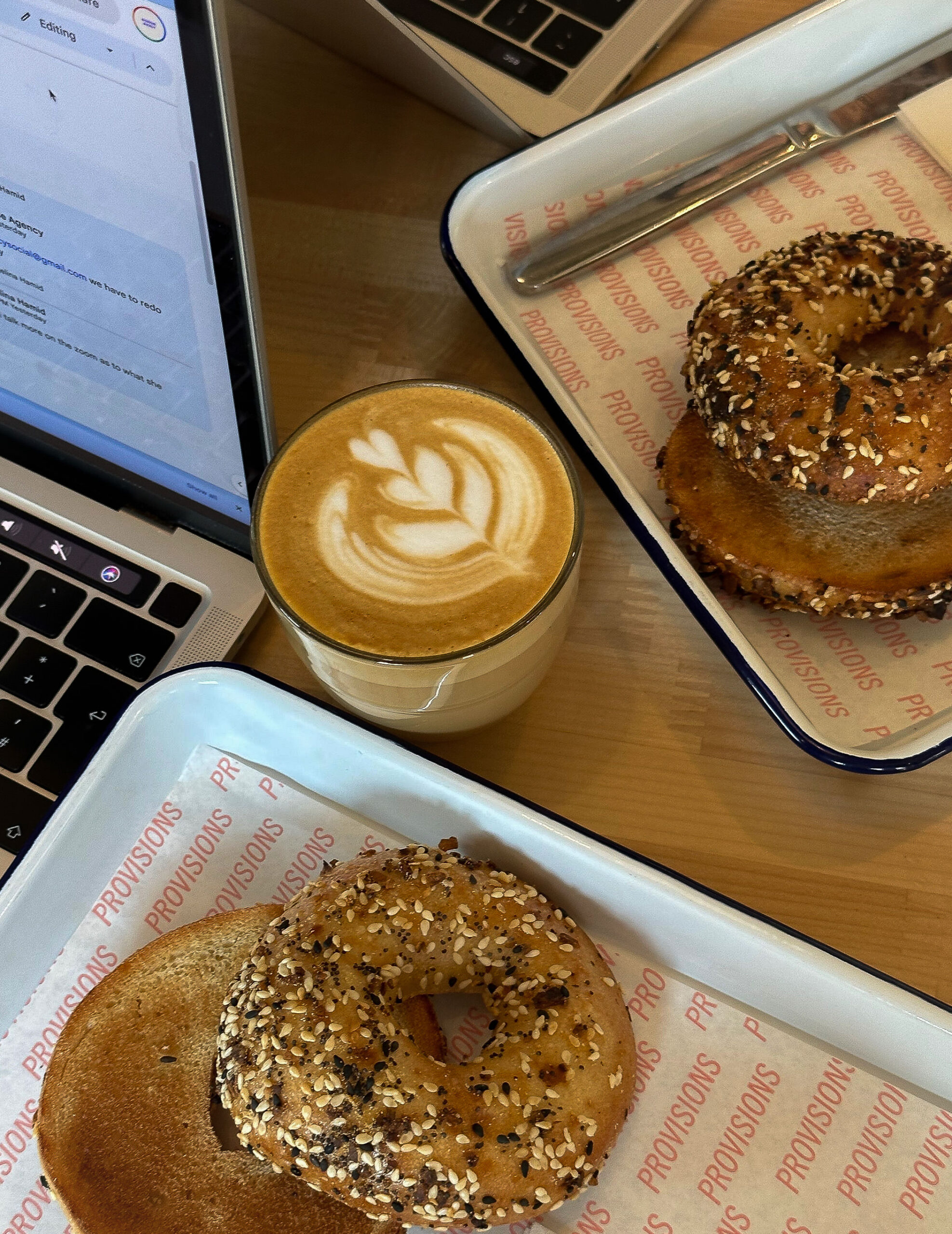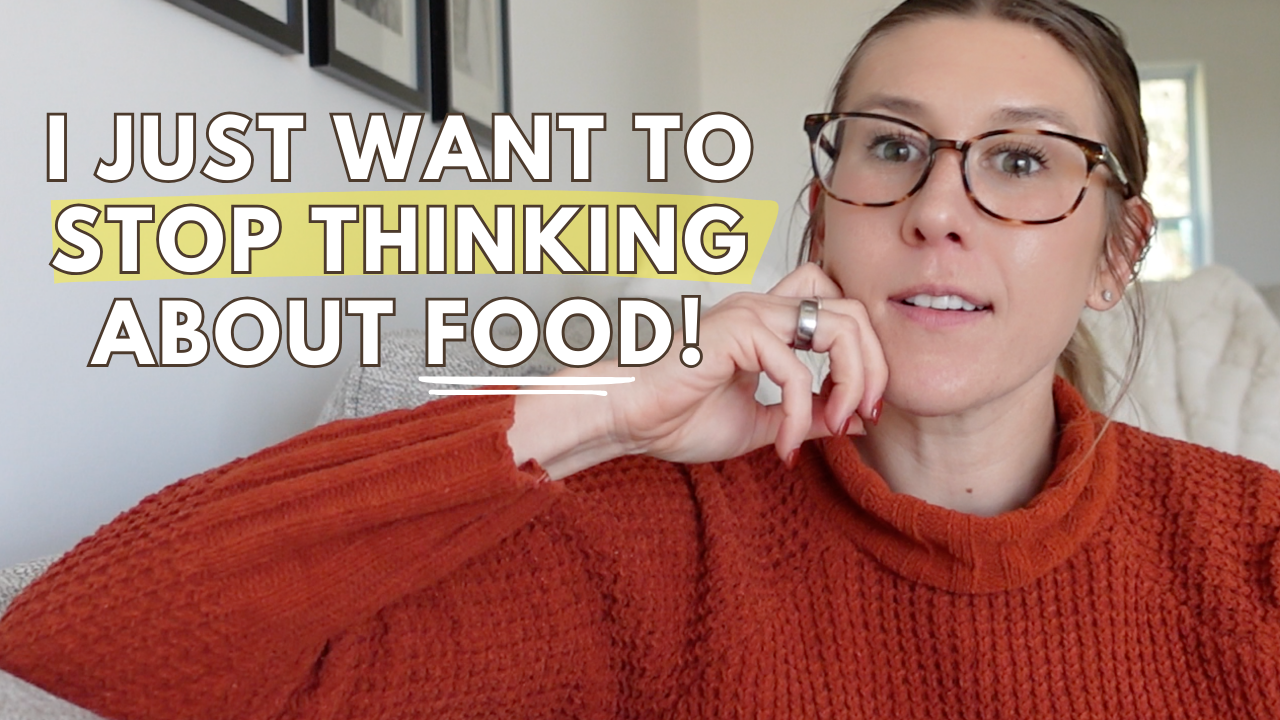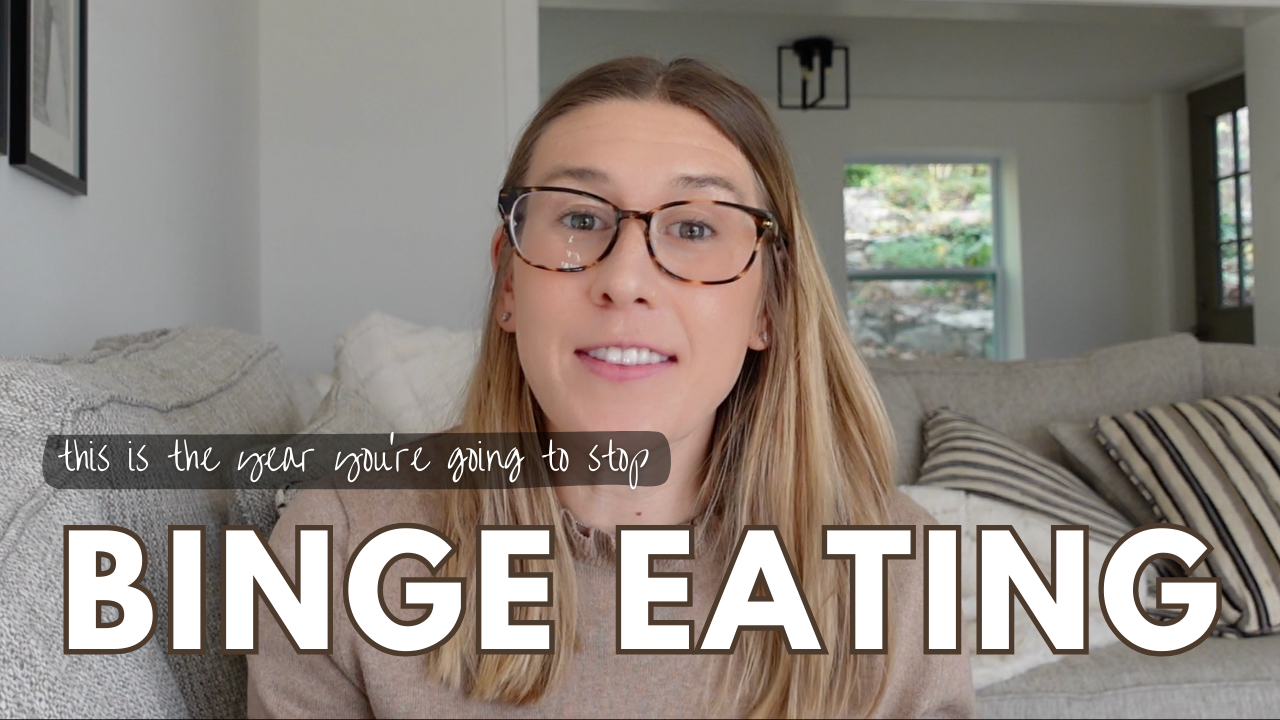The Surprising Benefits of Distracted Eating (And When It’s Actually Helpful)
April 29, 2024

Hey There, I'm Ryann Nicole.
I’m a recovered binge eater who changed the story from something that happened to me to something that happened for me. Now, I’m a licensed therapist teaching you to do the same.
My mission? To help you ditch food stress and live your life with mental peace and freedom every single day!
Okay, let’s clear something up—what is the difference between mindless eating and distracted eating? Are they the same thing? Not really. Do you need to know the difference? Absolutely! Stick with me because this can actually be pretty important in understanding your relationship with food and how you approach eating.
The Difference Between Mindful and Mindless Eating
Mindless Eating
Ever found yourself halfway through a bag of chips and thought, “Wait, when did I even start eating these?” Yeah, that’s mindless eating. It’s like your brain checks out, and food becomes something you’re not really there for. Maybe you’re eating because you’re bored, stressed, or just because the food is there. But you’re not paying attention at all. You’re not eating because you’re hungry—you’re eating because it’s happening in the background. The real problem? You often overeat because you’re disconnected from your hunger or fullness signals and, honestly, not even enjoying the food.
Mindful Eating
On the other side, we have mindful eating. This is when you’re completely in tune with what’s happening while you’re eating. You’re noticing the smells, tastes, and textures of the food, you’re paying attention to how hungry or full you are, and you’re being present. You’re not rushing through your meal, you’re savoring each bite, and—most importantly—you’re listening to your body. It’s not just about eating; it’s about nourishing and being aware of how you feel during the process.
So Then What Is Distracted Eating?
Distracted eating falls somewhere between mindless and mindful eating. We all do it—eating while watching TV, scrolling on our phones, or working. Distracted eating is when you’re eating while doing something else, but you’re still kind of aware of what you’re eating. Maybe you’re not totally checked out, but you’re definitely not giving the food your full attention. You’re eating, but your focus is split.
And here’s the surprise: distracted eating isn’t necessarily bad! Sometimes, it’s actually helpful. Wait, what? Yup, you heard that right.
When Distracted Eating Can Be Helpful
Sometimes, eating mindfully can feel like a little too much—especially if you’ve struggled with things like food anxiety, restrictive eating habits, or sensory issues. The hyper-focus of mindful eating can be overwhelming or even anxiety-inducing. Here’s when distracted eating steps in.
Food aversions or sensory issues: If certain foods make you anxious or uncomfortable, distracted eating can take the edge off. By focusing on something else while you eat, you’re giving yourself a little break from the sensory overload, making it easier to include foods that might otherwise be stressful.
Recovering from restrictive eating: If you’re in recovery from a restrictive eating disorder, sitting down and eating mindfully can feel super intimidating. Distracted eating lets you shift focus away from the food itself, which can reduce the anxiety that might come with eating certain foods.
ADHD and difficulty with food: For those with ADHD, distracted eating can help when focusing on food is overwhelming or hard to manage. Engaging in something else while eating can make the whole process of mealtime less stressful and more enjoyable.
When Mindful Eating Is Key
On the flip side, mindful eating can be a game-changer if you’re dealing with emotional eating or binge eating. Mindful eating puts you in the driver’s seat, helping you tune into the emotions that might be driving you to reach for food when you’re not actually hungry. It can help you slow down, recognize when you’ve had enough, and prevent that “stuffed” feeling that comes from overdoing it.
Mindful eating can also be a lifesaver for those who struggle with not knowing when to stop eating. Instead of focusing on external cues (like finishing everything on your plate), mindful eating encourages you to listen to your body’s internal cues—hunger, fullness, satisfaction—without feeling the need to overanalyze or follow strict rules.
The spectrum of eating behaviors, from mindless to mindful, offers a nuanced understanding of how our habits can impact both our physical and mental well-being. While mindful eating is often championed for its positive effects on emotional and binge eating, distracted eating can be a beneficial strategy for individuals facing unique challenges such as food aversions, restrictive eating disorders, sensory issues, food anxiety, and a lack of hunger cues. Ultimately, finding a balance that suits individual needs and promotes a healthy relationship with food is key in navigating the complex landscape of eating behaviors.
When to Choose Distracted vs. Mindful Eating
It’s not about choosing one over the other. It’s about knowing when each approach serves you best and when it fits your personal relationship with food. Here’s how it might look in real life:
If you’re feeling super anxious about eating a meal, maybe throw on a comforting TV show and let yourself get a little distracted. It takes the pressure off.
But if you notice you’ve been stress eating a lot lately, try to sit down with your next snack or meal and check in with yourself. Ask: Am I really hungry? Or am I just stressed? See how that shifts your experience.
So, What’s the Takeaway?
Next time you’re about to reach for a snack or sit down to eat, ask yourself: Do I need a mindful moment here, or could a little distraction actually help me right now? There’s space for both—and knowing when to use each one can make a world of difference.
Eating doesn’t have to feel so complicated. It’s about finding what works for you, one bite at a time.
Keep Reading
Practicing the Add-In Method with Donuts
The Pitfalls of Calorie Counting in Binge Eating Recovery: A Detriment to True Healing
Your Guide To Getting Started With Intuitive Eating: What It Is And How To Do It
check out the pod
Ways I Can Support You
01 Coaching
Intimate group coaching to break free from binge eating
02 podcast
Real talk on food, mindset shifts, motherhood, and finding peace.
03 support group
A safe space to connect with others on the same journey.
04 free coaching
Have real conversations and hear others share their struggles.
Ryann Nicole
Licensed Therapist, Certified Nutritionist, and Virtual Wellness Coach
Ryann is a licensed therapist and virtual wellness coach who has assisted individuals worldwide in establishing a healthier relationship with food and their bodies.
Are You Ready to Heal Your Relationship With Food?
I understand—it can be overwhelming to figure out where to begin. Let's simplify things and have you start right here:
Why Am I Overeating?
First Steps To Stop Binge Eating
The Ryann Nicole
Podcast
FREE QUIZ
FREE GUIDE
Podcast
the food freedom lab podcast




